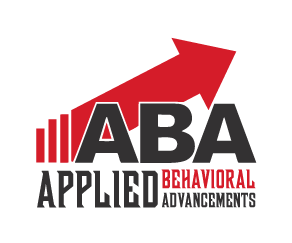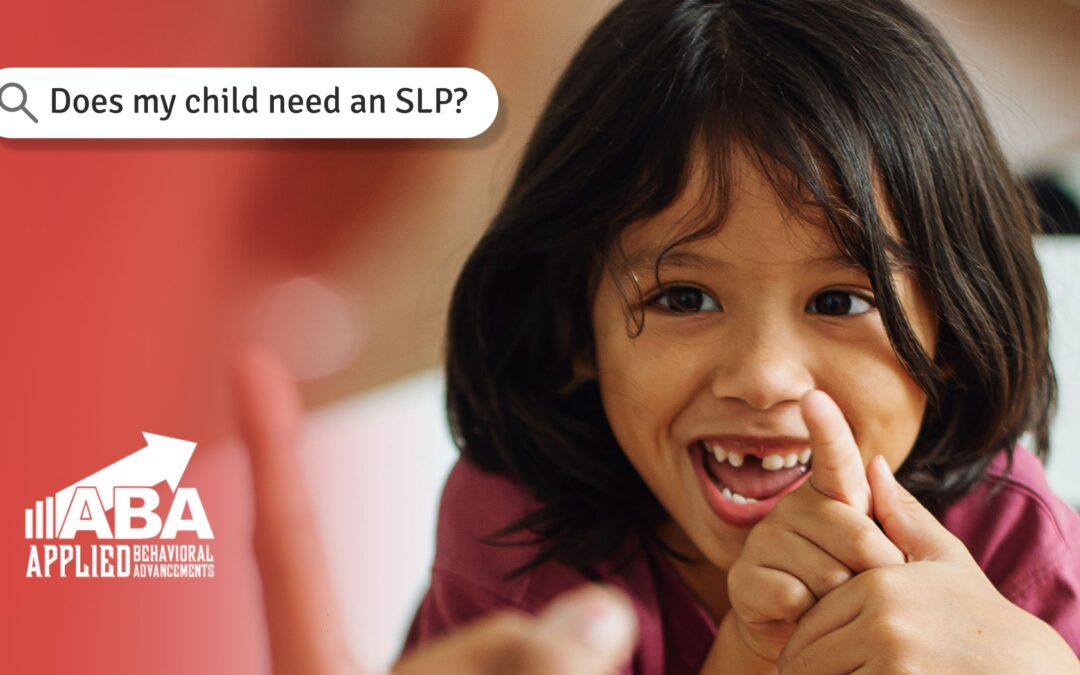Imagine this: you’ve taken your toddler to a family reunion with cousins around their age. While the other children are able to babble and even have a few words to your vocabulary, your little tot is completely silent. You wonder, “Does my child need an SLP?”
As a parent, it can be difficult to navigate how to measure your child’s early developments. Every child’s development is unique after all, and their pace is their own. However, when it comes to speech and language, there are some early signs to look out for that could indicate that your child may benefit from working with a Speech Language Pathologist (SLP). SLPs are trained to understand the ins and outs of both physical speech production and the cognition that drives the function of language. No matter what difficulty your child is experiencing, an SLP is trained to devise a unique program that addresses concerns and helps bridge the gap between your child and their developmental goals.
Understanding Developmental Goals
Developmental goals help us understand what milestones to look for in young children that indicate healthy speech language development. You’ve probably read about or experienced these milestones in your own life.
The American Speech-Langauge-Hearing Association’s Development Chart can help you understand what milestones your child is expected to hit during each stage of their early development. Remember- every child develops at their own pace, so there is no need to worry if your child hasn’t reached a few milestones here and there. However, if you notice that your child is struggling with reaching all or most of these milestones, it could be a sign that a Speech Language Pathologist could help.
You can view the full chart here:
https://www.asha.org/public/speech/development/chart
Speech Language Pathology Assessment and Evaluation
Now that you’ve reviewed ASHA’s Development Chart, you probably have a good idea of where your child stands developmentally. If you’re concerned, the next step is to reach out to a local Speech Language Pathologist for Assessment and Evaluation. Your SLP will be able to identify what issues your child may be facing, whether its a speech disorder, language disorder, or other diagnosis that is affecting speech.
What is a Speech Disorder?
Conditions that affect an individuals ability to produce sounds and form words are considered Speech Disorders. Speech disorders do not refer to a disorder in cognitive ability, but are instead focused on the physical components of producing language. Speech disorders may be the result of damage to the throat, mouth, vocal cords, or other muscles and nerves. Common speech disorders include stuttering, apraxia, and dysarthia.
What is a Language Disorder?
Language Disorders refer to any disorder that affects a person’s cognitive ability to recognize, respond to, and engage with language. People with language disorders may struggle to find the words they need to communicate their feelings, or may have trouble processing the words others speak to them. Additionally, a person may be able to functionally understand someone’s words, but vastly misinterpret the meaning and emotion behind them. Examples of a language disorder include Receptive Language Disorder and Expressive Language Disorder.
What other disorders do Speech Pathologists Treat?
The symptoms affecting your child may be linked to another neurological or physiological developmental disorder. Here is a list of common disorders that Speech Therapists provide support for:
- Aphasia
- Autism
- Stuttering
- Traumatic Brain Injury
- Dysarthia
- Apraxia
- Voice Disorders
- Stroke
- Dysphagia
- Articulation Disorders
- Fluency Disorders
- Cleft Palate
- Dementia
- Hearing Loss
- Parkinson’s
- Swallowing Disorder
- ADHD
- Hearing Loss
- Cognitive Communication Disorder
It is worth noting that a diagnosis is not necessarily required for your child to benefit from working with an SLP. The skills
What happens in a Speech Language Pathology session?
After your child’s initial evaluation, your SLP will integrate both observed speech habits and your personal concerns to create a plan of treatment for your child. This plan will consider both long term goals, and the short term goals necessary to meet said long term goals. If the long term goal is to get your child up to speed with the speech and communication milestones typical for their age group, short term goals might include recognizing and responding to words, correctly articulating a sound, or even just using new vocabulary words.
Your therapist may measure your child’s success rate by comparing the amount of times your child was able to demonstrate a skill vs. the amount of opportunities to demonstrate the skill. Typically, your therapist will be shooting for an 80% success rate for each short term goal, demonstrably performed three sessions in a row.
Your Speech Language Pathologist will employ a variety of different approaches during therapy with your child. Therapists typically choose desirable activities like reading, games, and puzzles that feel less like work and more like play. This makes it easy for children to progress quickly, as they’re both having fun and playing!
Each day, the SLP will record your child’s progress in Daily Progress Notes. It is within your rights to ask to see these notes when you have questions about your child’s progress or therapy.
Parent Involvement
While your SLP works with your child multiple times a week, you spend much more time with your child as a parent. For this reason, we know that Speech Therapy works best when parents are involved and supported. The SLP may provide you with materials and homework so that you can help with your child’s progress day-to-day. Don’t be afraid to ask questions and clarify when you’re confused!
Removing the stigma from Speech Therapy
No one wants to hear that their child is struggling. Unfortunately, due to years of stigmatization, it can be difficult to accept that your child needs speech therapy. Some parents hold off on seeking help because of pressure from society or family members to “just try harder” to help your child catch up at home. Ultimately however, you will be surprised at just how much easier life can be for both you and your child with the right support. Early intervention for speech language issues guarantees your child will be able to catch up to their peers and have success in their early education.
Remember – it’s never too late or too early to seek help for your child. Help is available at any stage in a person’s life. Speech Language Pathologists are here to support you and help your child find independence and clarity.
About ABA-LLC
ABA-LLC is one of the largest suppliers of Behavior Support in the State of Kentucky. Since 2007, the agency has created innovative strategies to improve the lives of unique individuals. ABA-LLC contracts with around 160 contractors, each dedicated to building an inclusive culture that celebrates individuals of all abilities. No matter who you are, you can reach your goals at ABA-LLC.
In everything the agency does, ABA-LLC is set apart from its competitors by its uniquely person-centered approach. The agency strives to provide services from a place of deep love for the population they serve. Their work exemplifies the belief that every individual has a right to live a fulfilling and independent life integrated within their communities. There is no objective to change a person, but rather to give them the tools they need to succeed. B.F. Skinner summarizes this vision in his quote: “I’m not trying to change people. All I want is to change the world in which they live.”

